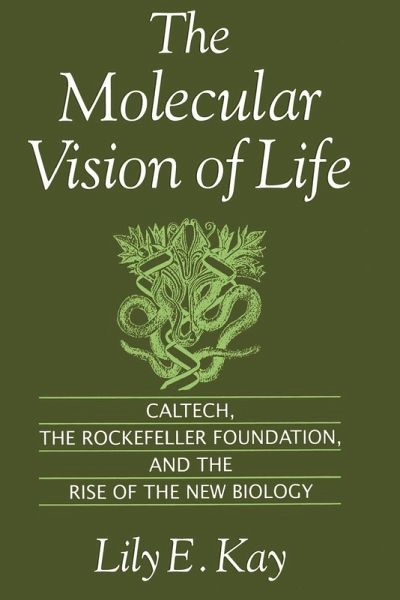
The Molecular Vision of Life
Caltech, the Rockefeller Foundation, and the Rise of the New Biology
Versandkostenfrei!
Versandfertig in 1-2 Wochen
191,99 €
inkl. MwSt.

PAYBACK Punkte
96 °P sammeln!
The study thus explores a number of vital, sometimes controversial topics, among them the role of private power centres in shaping the scientific agenda, the political aspects of "pure" research, and how genetic engineering was envisioned by some as a potential tool for social intervention. This book will be of special interest to all molecular biologists, as well as historians and sociologists of science. However the story told has broad significance, and it is written in an accessible, nontechnical manner, fully understandable to general readers.
The organizational history of Caltech is the loom on which Kay has woven an intricate fabric of the molecular vision of life.














